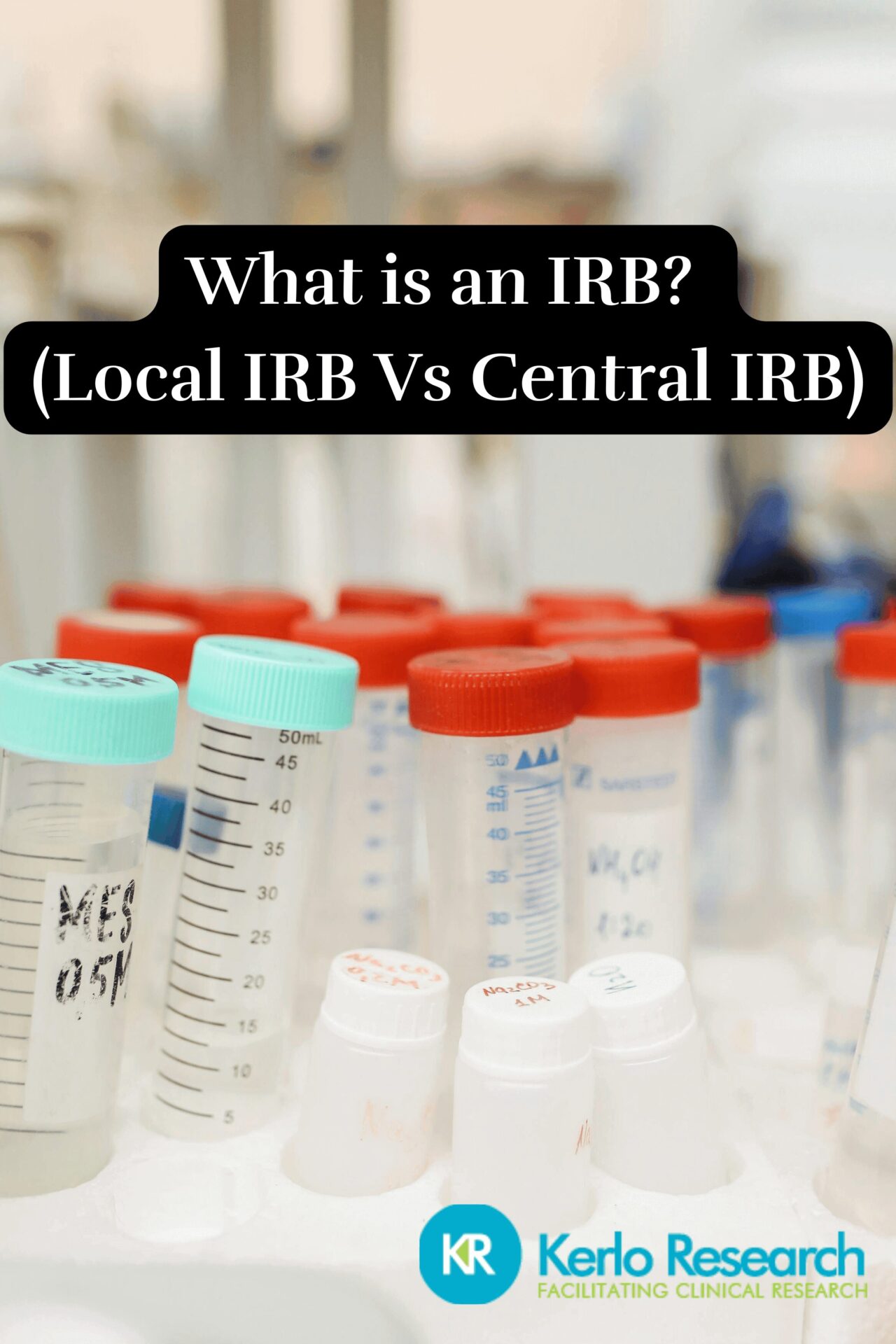What is an IRB? (Local IRB Vs Central IRB)
Clinical research is a cornerstone of medical advancements, but it comes with ethical and safety concerns that must be rigorously addressed. This is where an Institutional Review Board (IRB) steps in.
An IRB is a committee responsible for reviewing and overseeing research involving human participants to ensure it meets ethical standards and regulatory requirements. Without IRBs, the risks to participants could outweigh the potential benefits of research.
This article explores what is an IRB, the difference between working with a local IRB and working with a central one, its vital role in clinical research, and how Site Management Organizations (SMOs) can assist with IRB-related tasks.

What is an IRB?
If it is confusing you about what IRB actually is, don’t worry, we have got your back! Let us guide you through the meaning of Institutional Review Board (IRB), not only this but also the difference between Central and local IRBs.
Institutional Review Board (IRB)
An Institutional Review Board (IRB) is a committee established to review and approve research involving human subjects. The primary purpose of an IRB is to protect the rights, welfare, and well-being of research participants. By ensuring that studies comply with ethical guidelines and regulatory standards, IRBs play a crucial role in maintaining public trust in clinical research.
Institutional Review Board Responsibilities
IRBs have several critical responsibilities, including:
- Reviewing Research Protocols Evaluating study design, methods, and informed consent processes to ensure they meet ethical standards.
- Conducting periodic reviews to ensure continued compliance with ethical guidelines.
- Ensuring that participants are fully informed about the study and its risks, and that their consent is obtained voluntarily.
The IRB Review Process
The IRB review process involves several steps to ensure thorough evaluation:
- Initial Review: The IRB conducts a detailed review of the research protocol, focusing on potential risks and benefits, informed consent, and participant safety.
- Continuing Review: IRBs perform ongoing reviews of active studies to monitor compliance and address any emerging issues.
- Amendments and Modifications: Researchers must submit any changes to the study for IRB approval before implementation.
What is a Local IRB?
A local IRB is typically set up by an institution, such as a university or hospital, and is staffed by people who work there. These boards are often more approachable and easier to collaborate with, especially for smaller, investigator-led studies. Local IRBs are familiar with their institution’s specific needs and may offer more flexibility when working with smaller research groups.
What is a Central IRB?
A central IRB is a single, independent board that reviews and oversees research for multiple sites involved in a study. Supported by organizations like the National Institutes of Health (NIH), central IRBs streamline the review process by reducing the need for separate submissions at each research site. This makes them more efficient for larger, multi-site studies.
Difference between working with a local IRB and working with a central one?
The difference between working with a local Institutional Review Board (IRB) and a central IRB lies in the scope, approval process, and operational flexibility.
Here’s a breakdown:
| Difference | Local IRB | Central IRB |
| Scope | Affiliated with a specific institution, such as a hospital, university, or research organization. | An independent body that provides IRB review services for multiple sites in a multi-site study. |
| Review Process | focus on the specific concerns of their institution and are familiar with the local patient population, ethical standards, and institutional policies. | Streamline the review process by providing a single point of approval for all sites in a study. This speeds up the process. |
| Operational Flexibility | The review process of local IRBs can be slower because each site requires its own approval, and there may be variability in standards and decision-making across different IRBs. | The use of a central IRB can offer greater consistency across sites, as all sites adhere to the same standards and protocols. This makes it more efficient. |
| Investigator Involvement | Investigators working with local IRBs may have closer relationships with the IRB members, allowing for better communication | Investigators may have less direct interaction with the central IRB, as it operates independently. However, they often have more resources and are well-equipped to handle complex regulatory requirements. |
| Cost | Local IRBs may require separate fees for each site. | Central IRBs may be more cost-effective for multi-site studies due to the efficiency of a single review |
Regulatory Framework
IRBs operate within a robust regulatory framework established by federal agencies such as the FDA and OHRP. Key regulations include:
- 45 CFR 46 (The Common Rule): Outlines the basic ethical principles and guidelines for research involving human subjects.
- 21 CFR 50: Specifies the requirements for informed consent in FDA-regulated research.
- 21 CFR 56: Establishes the standards for IRB composition and functioning.
How SMOs Assist with IRB-Related Tasks
Site Management Organizations (SMOs) play an important role in assisting with IRB-related tasks, below-mentioned are a few essential roles:
Protocol Preparation and Submission
Starting with protocol preparation and submission. SMOs ensure that research protocols are comprehensive, clear, and compliant with regulatory standards before submission to the IRB.
- Expertise in Documentation: SMOs have experienced staff who specialize in preparing detailed and accurate research protocols, reducing the likelihood of delays due to incomplete submissions.
- Timely Submissions: By handling the administrative aspects of IRB submissions, SMOs help expedite the review process, allowing studies to commence without unnecessary delays.
Informed Consent Process
The informed consent process is a critical aspect of ethical research, and SMOs are instrumental in ensuring that participants are fully informed about the study.
- SMOs assist in drafting informed consent forms that are clear, comprehensive, and understandable to participants.
- They provide educational materials and resources to help participants understand the study’s purpose, procedures, risks, and benefits.
Ongoing Compliance Monitoring
Ensuring ongoing compliance with IRB requirements is crucial for the duration of the study. SMOs offer continuous support to maintain adherence to approved protocols and regulatory standards.
- SMOs conduct regular audits to monitor compliance with IRB-approved protocols and identify any deviations that need to be addressed.
- They provide training for research staff on regulatory requirements and best practices, ensuring that the team remains informed and compliant throughout the study.
Reporting and Documentation
Accurate and timely reporting is essential for IRB compliance, and SMOs manage this aspect efficiently.
- SMOs ensure that any adverse events or unanticipated problems are promptly reported to the IRB, safeguarding participant safety.
- They maintain meticulous records of all IRB communications, approvals, and study documentation, facilitating seamless regulatory inspections and audits.
Ethical Oversight and Advocacy
SMOs act as advocates for ethical research practices, working closely with IRBs to uphold the highest standards of participant protection.
- SMOs provide ethical guidance to researchers, helping them navigate complex ethical dilemmas and make informed decisions.
- They ensure that participants’ rights and welfare are prioritized, advocating for their interests throughout the study.
Ending Line
An Institutional Review Board (IRB) is indispensable in safeguarding the ethical conduct of clinical research. By ensuring that studies adhere to rigorous ethical standards and regulatory requirements, IRBs protect the rights and welfare of participants, thereby fostering public trust in the research process.
Also,partnering with an SMOcan streamline the IRB process, ensuring that studies are conducted smoothly and in full compliance with ethical and regulatory standards.

